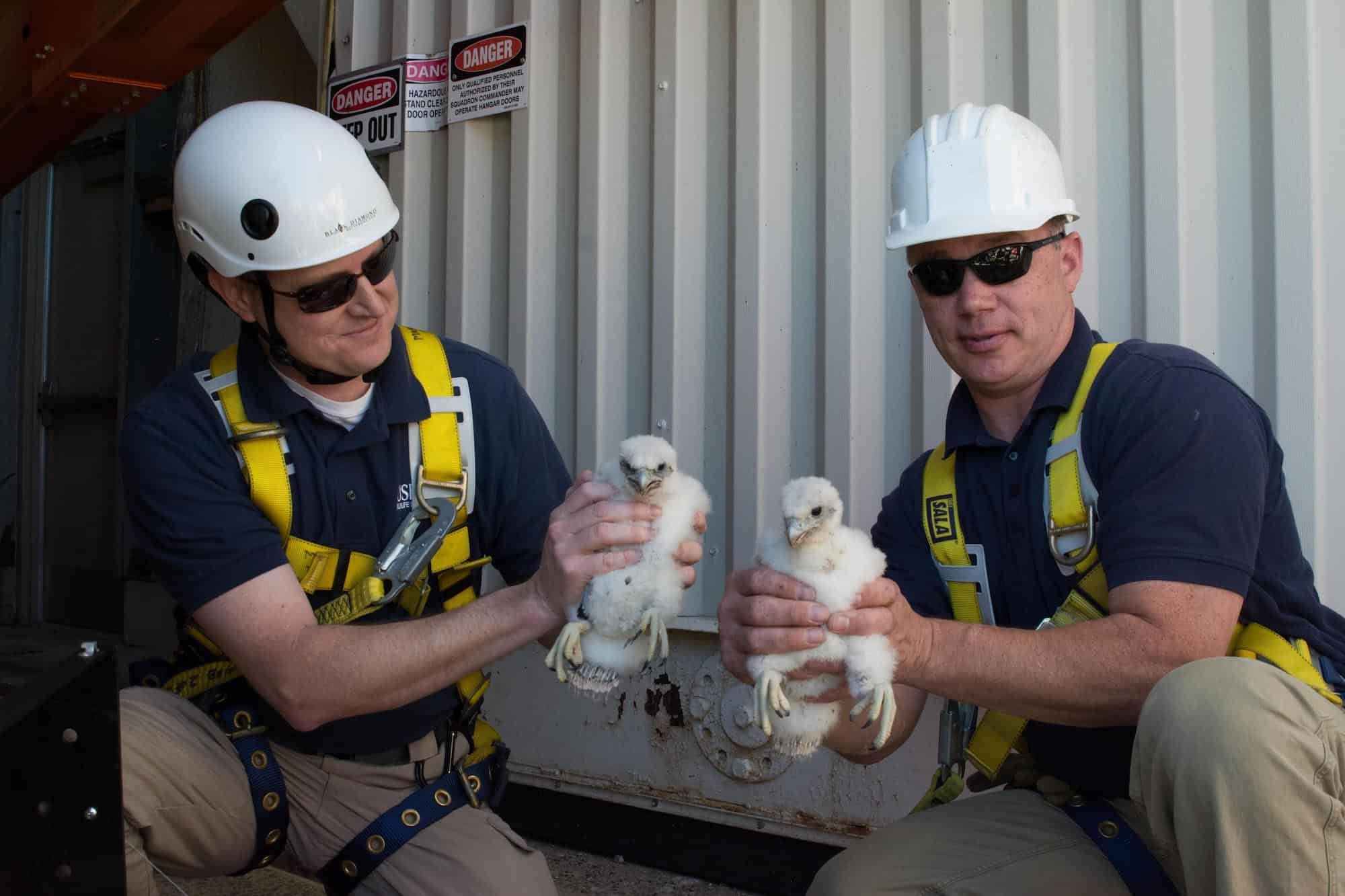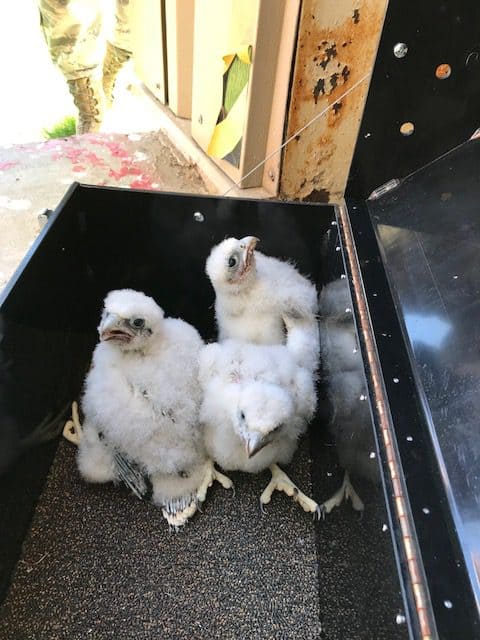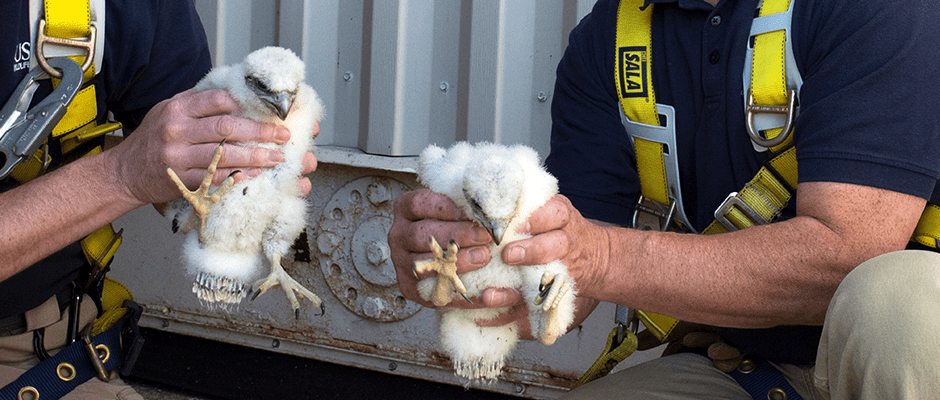Share this article
Airplane hangar makes poor site for peregrine nest
Every spring in New England seems to bring stories of poorly located raptor nests resulting in conflicts with humans. At Westover Air Reserve Base, Wildlife Services-Massachusetts had its first peregrine falcon (Falco peregrinus) relocation this year. It wasn’t easy, but we hold great hopes for its success, and for the adults to find a better site than an airplane hangar to raise their young.
When a pair of peregrines arrived at the base in Chicopee, Massachusetts last year, they selected a pull-through hangar for a massive C-5 military transport plane, building a nest in the pocket where the gigantic doors retract. Massachusetts lists the federally-protected peregrine as a threatened species, so when a chick was crushed as the doors were opened, it was particularly difficult for me to watch. The other chick fell to the ground, prompting Joe Rogers, the Wildlife Services airport biologist, to take it to a rehabilitator.
This year we attempted to bar the pair from the crevice and encourage them to nest elsewhere, but the exclusion was unsuccessful. The birds laid four eggs. We started working collaboratively with the airbase and Tom French of the Massachusetts Division of Fisheries and Wildlife to find a solution to successfully relocate these birds’ future nesting.
Biologists with the state agency suggested that peregrines, which are very sensitive to nest failure, may relocate if they experience nest failure for two or three consecutive years. They recommended hand-capture of the chicks at 14-16 days old for re-nesting in other nests with chicks of the same age.
Implementing that plan found Joe and me five stories up in a lift, threading the needle into a small niche inside the hangar doorway. We recovered three chicks and carried them by hand them to the division’s field headquarters in Westborough.
State biologists banded the chicks and will hold them with a rehabilitator until appropriate foster nests are found. We’re hopeful the bird will make it to adulthood. The success rate for a foster chick, division biologists say, is close to 100 percent.

Don Wilda, CWB® and WS airport biologist Joe Rogers transfer two of three chicks rescued from hazardous nest in airport hanger door. ©U.S. Air Force

Three Peregrine falcon chicks will be re-nested by Massachusetts wildlife officials. ©USDA Wildlife Services
Wildlife Services is a Strategic Partner of The Wildlife Society.
Header Image: ©U.S. Air Force








